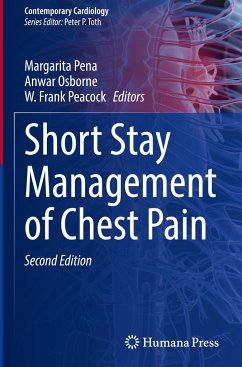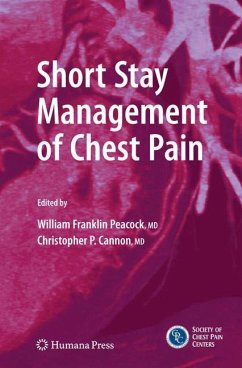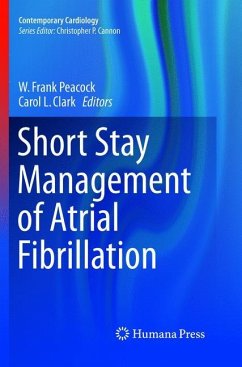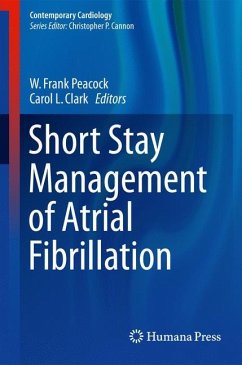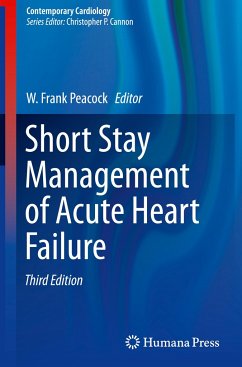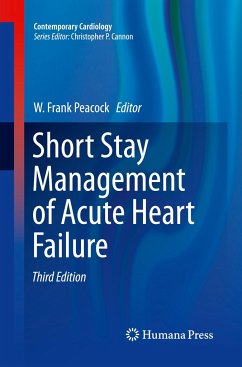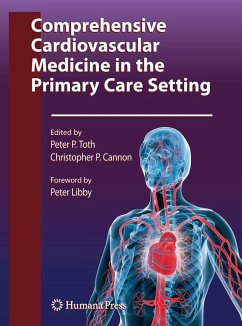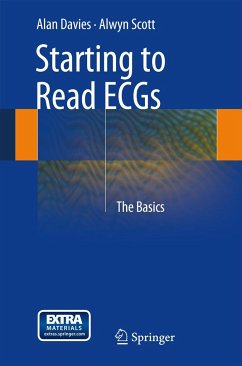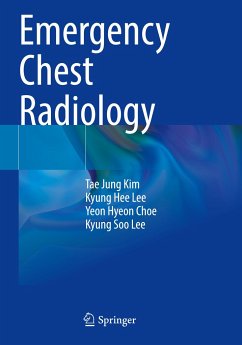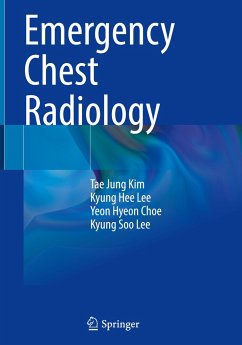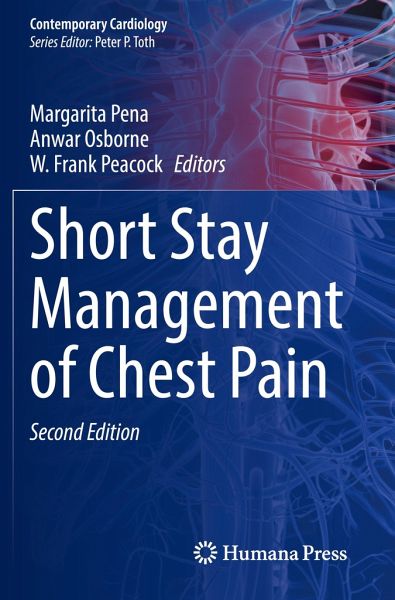
Short Stay Management of Chest Pain
Versandkostenfrei!
Versandfertig in 6-10 Tagen
76,99 €
inkl. MwSt.

PAYBACK Punkte
38 °P sammeln!
The second edition of this book provides scientific and clinical insights on the management of patients who arrive at the hospital with a presentation consistent with a potential acute coronary syndrome. Focusing on the cardiology aspects of chest pain, it presents the science and methodology that has allowed the remarkable improvements in diagnostic accuracy and improved patient outcomes for the evaluation of patients presenting with suspected acute coronary syndromes. Chapters address key issues of the implementation of high sensitivity troponin and the use of contemporary non-invasive myoca...
The second edition of this book provides scientific and clinical insights on the management of patients who arrive at the hospital with a presentation consistent with a potential acute coronary syndrome. Focusing on the cardiology aspects of chest pain, it presents the science and methodology that has allowed the remarkable improvements in diagnostic accuracy and improved patient outcomes for the evaluation of patients presenting with suspected acute coronary syndromes. Chapters address key issues of the implementation of high sensitivity troponin and the use of contemporary non-invasive myocardial perfusion evaluation technologies (e.g., coronary artery computed tomography). It also addresses the cutting edge application of new technologies that promise to effect the early identification of coronary vascular disease. This new edition offers updated chapters as well as brand new chapters.
Short Stay Management of Chest Pain is a valuable tool for acute care physicians, nurses, and hospital administrators devoted to caring for this population.
Short Stay Management of Chest Pain is a valuable tool for acute care physicians, nurses, and hospital administrators devoted to caring for this population.





